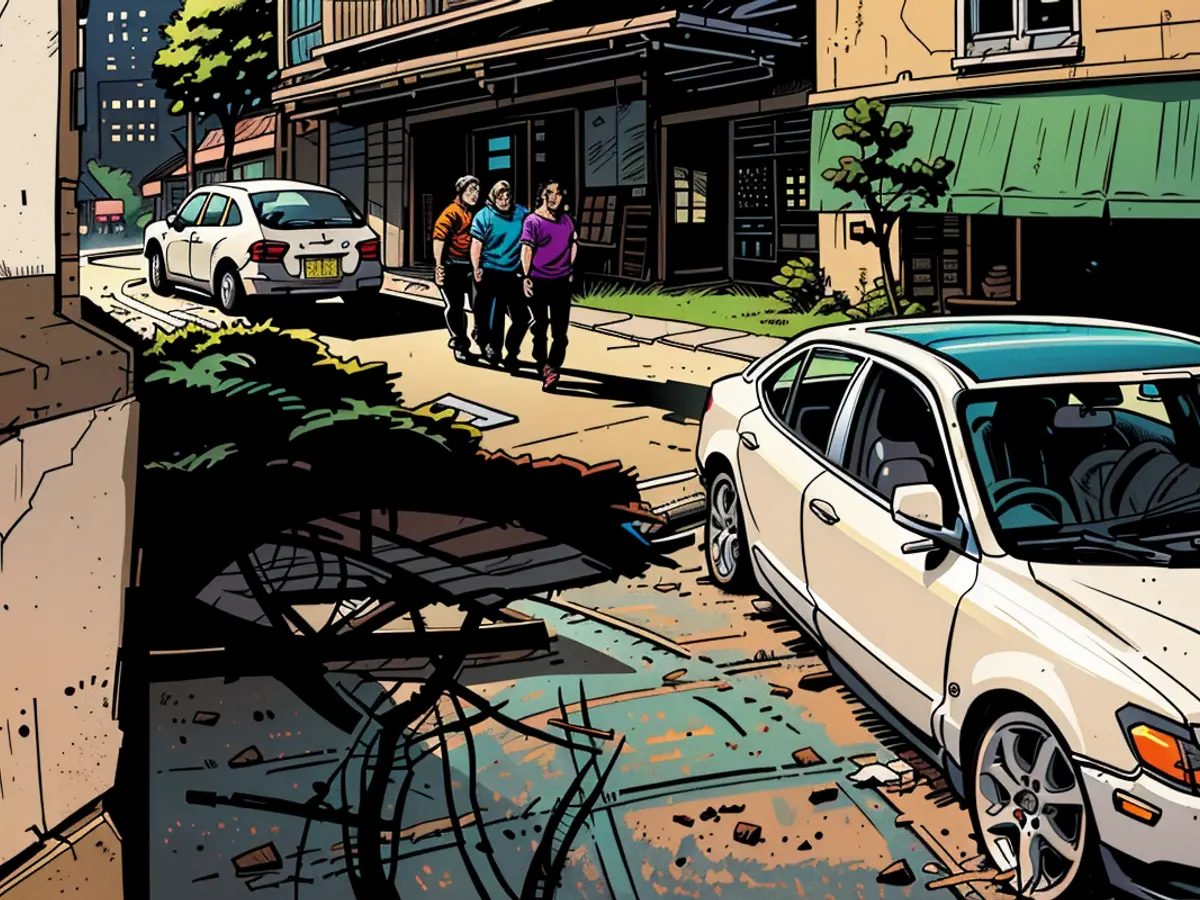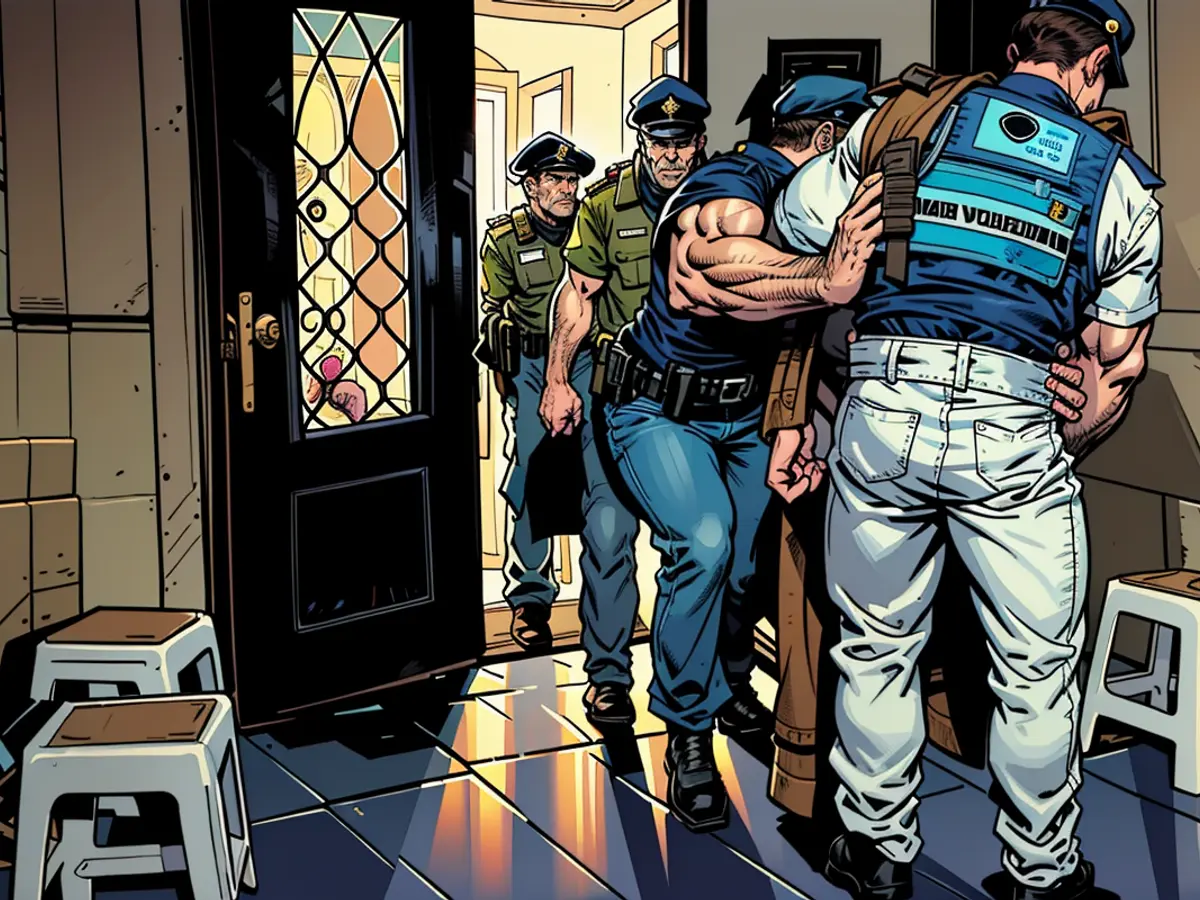Despite Putin's longstanding commitment to eradicate Islamic extremism, a lethal attack in Dagestan underscores his inability to fulfill this pledge.
Videos of the turmoil depict cops scurrying along Makhachkala's chaotic streets as night descends, implying a higher death toll among police officers than civilians, hinting at undisclosed civilian casualties to come.
Limited information is intentionally disclosed, as Russia has tried for years to curb the rampant Islamic extremism bred by decades of oppression and poverty throughout the North Caucasus. Sometimes they use extreme force, other times they withhold information, but neither has managed to quell the problem.
This dominance – nearly three months following the attack where gunmen invaded Moscow's Crocus City Hall, slaying 133 – underscores the fact that Russia's Islamic menace has evolved, spreading worldwide, and the young generation inherits the same vile hatred for the Kremlin's past and present.
The magnitude of the law enforcement response will be crucial as Russia's political hierarchy analyzes the aftermath. The high police casualty rate suggests they were either targeted specifically or confronted fierce resistance when they engaged. The conflict in Ukraine – with police scattered across the frontlines – has weakened Russia's law enforcement forces nationally, particularly in Dagestan, where discontent erupted amid the early stages of the war due to disproportionate mobilization of their sons.
Dagestan is a poverty-stricken corner of Russia on the Caspian Sea, dominated by Muslim communities. The conflict in Ukraine has left numerous empty spaces at the dining table and fueled resentment against the Kremlin and its corrupt local representatives. Missing children are difficult to accept, but if it comes at the cost of reduced security at home, it poses a critical challenge for the Kremlin's grip on Dagestan.
Extremist Islamism became Russia's curse after the brutality of its two wars in Chechnya. Putin ascended to power in 1999, promising to eradicate "in the toilet" the extremists allegedly responsible for apartment bombings in Moscow. Chechen separatist rebels like Shamil Basayev grew more radical in their beliefs as Moscow's suppression intensified, often arbitrarily executing military-age males in the early 2000s. As the years passed, both parties fueled each other's extremism; terrorists reached unparalleled depths of savagery, and security forces responded with no constraints.
Sunday's attacks on Christians in Dagestan echo the terrorists' most heinous act – the siege of the school in Beslan in 2004, where a Christian area was targeted, resulting in over 300 casualties, mostly children. The response from security forces was woeful initially, only improving when special forces intervened, paying a heavy price in casualties. Russian President Vladimir Putin stealthily visited the injured in a hospital during the dead of night. Beslan symbolized the wound Putin pledged to heal when he assumed office. As he has now, he failed back then, and avoided any public display with the catastrophe.
Chechen wars ignited the region
The Beslan participants had layered pasts, showcasing how the Chechen wars fomented an entire region. They were mostly not Chechens, but from nearby Ingushetia, another Russian region plagued by its brutal war on extremism and separatists. Their decision to launch such a horrifying plan – and the only real outcome was death – stemmed from the atrocities they had witnessed.
I interviewed the sole surviving Beslan gunman's father in 2004, in a remote Chechen village. A fragile man, wearing a kufi hat and silver beard, he stated little about his son's crimes. Our conversation was brief, as Russian forces were entering homes on the other side of his village during another clean-up operation. He said to me only this: "It is as Lenin said. There is White and there is Red. Always has been, and always will be." He implied that there are two sides in this brutal war, and they are irrevocably divided.
Fast forward a decade, and the North Caucasus came back into focus when two former residents carried out the Boston bombing in 2013. Their ties to Dagestan extremism were tenuous. Most reporting suggested the elder brother had attempted to join local jihadists, and hung around Makhachkala for weeks, hoping for initiation. However, by then, Dagestan's extremists were highly selective. Prospective recruits were expected to endure months in isolation, without cellphones or other contact, before being admitted to jihadist training in the dense forests, surrounded by committed militants eager to inflict violence.
The caution was a consequence of Moscow's crackdown. Surveillance was everywhere, and law enforcement wouldn't take risks when engaging suspects. In many cases, a potential militant would be surrounded, his family allowed to leave, and then his home stormed, offering no opportunity for surrender.
That was over a decade ago. Nothing has improved since, and a younger generation now have the siren call of ISIS's disintegrated caliphate of 2014 to amplify their fantasies. They face stronger incentives in the teachings and propaganda of ISIS-K, an offshoot of the Middle Eastern group in South and Central Asia, expanding its reach.
It's the same predicament that Putin encountered back in 2004 when he infiltrated Beslan. This insurgent outburst of fury was born in a poverty-stricken, oppressed, and mistreated peripheral region. The Kremlin believed they could subdue this terror, but their cruelty only served to magnify it. A location that Moscow shows little concern for, but one they would never let break away. A fiery wound for the Kremlin, and a symbol of Putin's ascent to power and the boundaries of his reign.

Read also:
Despite the ongoing struggle against extremism in Europe, Russia's Islamic threat has propagated beyond its borders, affecting the continent as well.
The North Caucasus, a region beset by poverty and religious tensions, has become a breeding ground for radical ideologies that have spread to parts of Europe.







